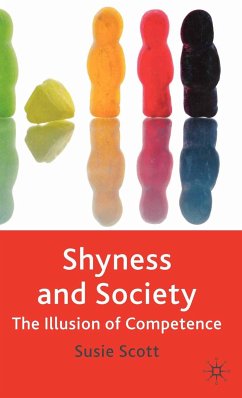
Psychologization and the Subject of Late Modernity (eBook, PDF)
Versandkostenfrei!
Sofort per Download lieferbar
40,95 €
inkl. MwSt.
Weitere Ausgaben:

PAYBACK Punkte
20 °P sammeln!
Jan De Vos's second book on psychologization argues that psychology IS psychologization, a phenomenon traced back from Late-Modernity to the Enlightenment. Engaging with seminal thinkers such La Mettrie, Husserl, Lasch and Agamben, the book teases out the limits of psychoanalysis as a critical tool.
Dieser Download kann aus rechtlichen Gründen nur mit Rechnungsadresse in A, B, BG, CY, CZ, D, DK, EW, E, FIN, F, GR, HR, H, IRL, I, LT, L, LR, M, NL, PL, P, R, S, SLO, SK ausgeliefert werden.












